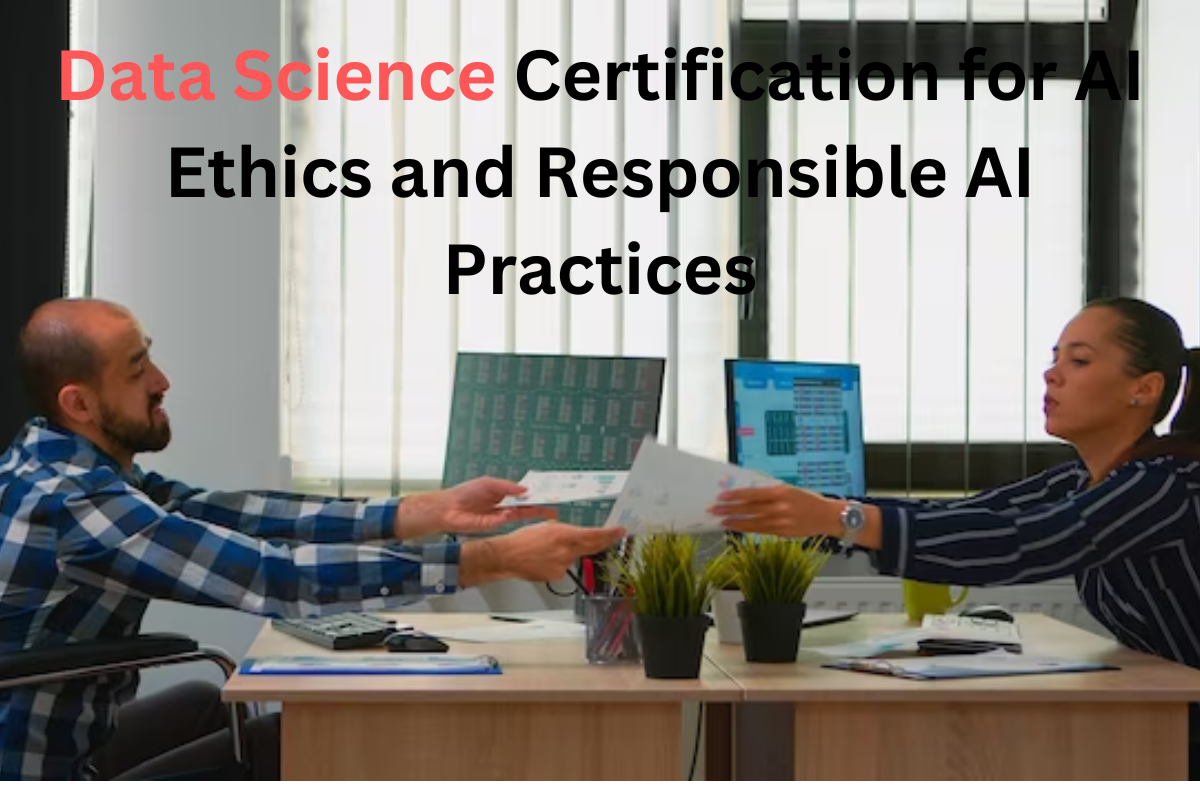Mastering Data Science: Key Skills and Trends for the Year Ahead
Mastering data science in the upcoming year involves honing key skills and staying abreast of emerging trends. Here's a guide to help you navigate the evolving landscape of data science in the year ahead:
1. Advanced Programming Proficiency:
Python and R Mastery: Strengthen your proficiency in programming languages such as Python and R. These languages are foundational to data science coaching in hyderabad and widely used for data analysis, machine learning, and statistical modeling.
2. Statistical Analysis and Mathematics:
Solid Foundation: Maintain and deepen your understanding of statistical concepts and mathematical foundations. This knowledge is crucial for formulating hypotheses, designing experiments, and deriving meaningful insights from data.
3. Machine Learning Expertise:
Algorithm Proficiency: Master a variety of machine learning algorithms, including supervised and unsupervised learning techniques. Develop skills in model evaluation, hyperparameter tuning, and understanding the nuances of different algorithms.
4. Deep Learning Competence:
Neural Network Understanding: Deepen your knowledge of neural networks and deep learning. Stay updated on advancements in architectures such as convolutional neural networks (CNNs) and recurrent neural networks (RNNs) for tasks like image recognition and natural language processing.
5. Data Visualization Proficiency:
Effective Communication: Enhance your data visualization skills. The ability to communicate complex findings through compelling visuals is crucial for conveying insights to both technical and non-technical stakeholders.
6. Big Data Technologies:
Apache Spark and Hadoop: Familiarize yourself with big data technologies like Apache Spark and Hadoop. As data volumes continue to grow, proficiency in distributed computing frameworks is essential for scalable data processing.
7. Cloud Computing Skills:
AWS, Azure, or Google Cloud: Gain expertise in cloud computing platforms such as AWS, Azure, or Google Cloud. Cloud services facilitate scalable and flexible data storage, processing, and analysis.
8. Natural Language Processing (NLP) Knowledge:
Text Analysis: Develop skills in natural language processing (NLP) for text analysis and language understanding. NLP is increasingly applied in areas such as sentiment analysis, chatbots, and document classification.
9. Data Engineering Proficiency:
ETL Processes: Understand the principles of data engineering, including designing and optimizing ETL (Extract, Transform, Load) processes. Efficient data pipelines are crucial for streamlined data processing.
10. Predictive Analytics and Time Series Analysis:
Forecasting Skills: Master predictive analytics and time series analysis. These skills are valuable in various domains, including finance, healthcare, and manufacturing, where predicting future trends is essential.
11. Cybersecurity Awareness:
Data Protection: With the increasing importance of data, be mindful of cybersecurity principles. Understand how to protect sensitive information and contribute to secure data handling practices.
12. Explainable AI (XAI):
Model Transparency: Given the growing concerns about AI ethics, focus on explainable AI (XAI). Strive to make your models interpretable and transparent, addressing issues of bias and ensuring accountability in decision-making.
13. Domain-specific Expertise:
Industry Relevance: Acquire domain-specific knowledge relevant to your area of interest. Whether it's finance, healthcare, or e-commerce, understanding the nuances of the industry enhances the impact of your data science insights.
14. Collaborative Tools and Version Control:
Git and Collaboration Platforms: Familiarize yourself with version control tools like Git and collaborative platforms. These tools facilitate efficient collaboration with team members, especially in distributed and remote work environments.
15. Data Governance Understanding:
Regulatory Compliance: Stay informed about data governance principles and regulatory compliance, including standards like GDPR. Ethical data handling practices are integral to responsible data science.
16. Automated Machine Learning (AutoML):
Efficiency Tools: Explore Automated Machine Learning (AutoML) tools. These platforms automate aspects of the machine learning workflow, making it more accessible and efficient, especially for those with less technical expertise.
17. Interdisciplinary Collaboration:
Effective Communication: Develop strong communication skills for interdisciplinary collaboration. The ability to convey complex technical concepts to non-technical stakeholders fosters collaboration and ensures the alignment of data science projects with broader business goals.
18. Continuous Learning and Adaptability:
Lifelong Learning: Embrace a mindset of continuous learning. The field of data science evolves rapidly, and staying adaptable is essential for mastering new tools, techniques, and methodologies.
19. Ethical AI Practices:
Bias Mitigation: Learn and implement strategies for mitigating bias in AI models. Understanding the ethical implications of your work is crucial for building responsible and fair data science online training in hyderabad solutions.
20. No-Code/Low-Code Platforms:
Accessibility Tools: Explore no-code/low-code platforms. These tools are becoming more prevalent and enable individuals with non-technical backgrounds to participate in data science projects.
21. Remote Work Skills:
Virtual Collaboration: Develop skills for effective virtual collaboration. With remote work becoming more common, proficiency in virtual communication and project management is valuable.
22. Data Science Certifications:
Continuous Validation: Pursue relevant data science certifications. Certifications provide tangible validation of your skills and commitment to ongoing professional development.
23. Blockchain Awareness:
Decentralized Data Handling: Familiarize yourself with blockchain technology. While not directly related to every data science task, understanding its principles can be beneficial, especially in contexts where decentralized data handling is crucial.
24. Augmented Analytics and Auto Insights:
AI-Augmented Analysis: Explore augmented analytics tools that use AI to automatically discover insights from data. These tools can enhance your efficiency in extracting meaningful patterns from large datasets.
25. Global Data Privacy Compliance:
International Regulations: Stay aware of global data privacy regulations. Understanding how regulations vary across regions is essential for ensuring compliance in a globalized data environment.
Mastering data science in the year ahead requires a holistic approach that combines technical proficiency, ethical considerations, and adaptability to emerging technologies. Keep a pulse on industry trends, continuously refine your skill set, and actively contribute to the evolving field of data science.
For More information
360DigiTMG - Data Analytics, Data Science Course Training Hyderabad
Address:
2-56/2/19, 3rd floor, Vijaya towers near Meridian school, Ayyappa Society Road, Madhapur,
Hyderabad, Telangana 500081
Phone +91 99899 94319
Website URL:
https://360digitmg.com/india/hyderabad/data-science-certification-course-training-institute
Business Email:
https://goo.gl/maps/sn21C9xFtMbCr4qm8
Resource Link : What are the Best IT Companies in Uppal
What are the Best IT Companies in Hyderabad
Sampling and its Types in Data Science
data science training in hyderabad



Comments
Post a Comment